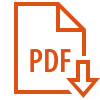My journey to becoming: An underwriter with Faith Ndebele

Gone are the days where there is one correct route to land yourself a specific job role. Experience and expertise can come in many forms, which is why we sat down with Faith Ndebele, to find out how her journey to becoming an underwriter began and how the experience has been.
1. How did your journey to becoming an underwriter begin?
I studied accounting and finance at the University of Bedfordshire, so I’ve always been a numbers and finance kind of person. Whilst working in accounting as a banking consultant, I realised it wasn’t for me but it was a stepping stone for me getting into mortgages. I learnt about the bridging market, which I wasn’t too familiar with, so with more research I decided to make the transition from retail banking to bridging finance.
2. What is your favourite thing about your role?
Dealing with a different case every single time! Each case is going to have a different quirk that comes up and it just makes the day interesting. I never stop learning as there’s always something that comes up that I’ve never experienced before.
3. What is the hardest thing about your role?
Trying to coordinate timelines with everyone. When borrowers approach bridging lenders it usually means they are working with a tight deadline. There are however processes that have to take place to make bridging possible. Evaluations can take longer than usual or complications can come up in legals, explaining this can be the difficult part.
4. What advice would you give someone looking to become an underwriter?
Get your CeMap, this is a certificate in mortgage advice and practice. What that does is, it helps you with learning about the financial industry in general. Lending, mortgages and insurance are among the areas you learn about in the syllabus, this knowledge helps you with your day to day experiences as an underwriter.
With CeMAP it’s easy to get into underwriting and opens up many doors for you, for example, whether you want to go into regulated lending or brokering.
5. What qualities do you think make a good underwriter?
Being patient and paying attention to detail mainly. I want to emphasise on patience especially because you’re dealing with loads of different parties, from lawyers, to surveyors, brokers, the borrower directly themselves and the credit committee you have to liaise with.
Attention to detail is important because you need to spot the key factors in a deal that might be risky to the business, you’re assessing the risk of a loan, if there’s a minor detail that you don’t spot, could mean this increases the risk that the borrower doesn’t repay.
The ability to multitask is also important as you’re having to balance and deal with all these different parties at the same time.
6. If you could go back to the start of your journey would you do anything different?
Possibly I would have picked which area to specialise in earlier on, so that I would have progressed further quicker. However, doing all these things has given me a broader experience.
7. Where do you see yourself in five years with your career?
I see myself specialising in one specific type of finance. I enjoy development finance, so I would like to specialise in underwriting development finance cases. The reason for that is because there are so many moving parts, so much to learn, many more people involved and you get to go out on site and see what you’re funding, as well as the progress from start to finish.
8. How has underwriting changed in the past few years during your career?
Prior to covid, and when I first started underwriting, you had the physical files, that would have all your credit papers in and would be a massive file that needs to be stored in the office. Now everything’s digitised, this shows the progression of technological innovation. Everyone can access files no matter where you are, especially here at TAB, we’re cloud based and our technology team has developed a bespoke platform that is highly efficient.




































